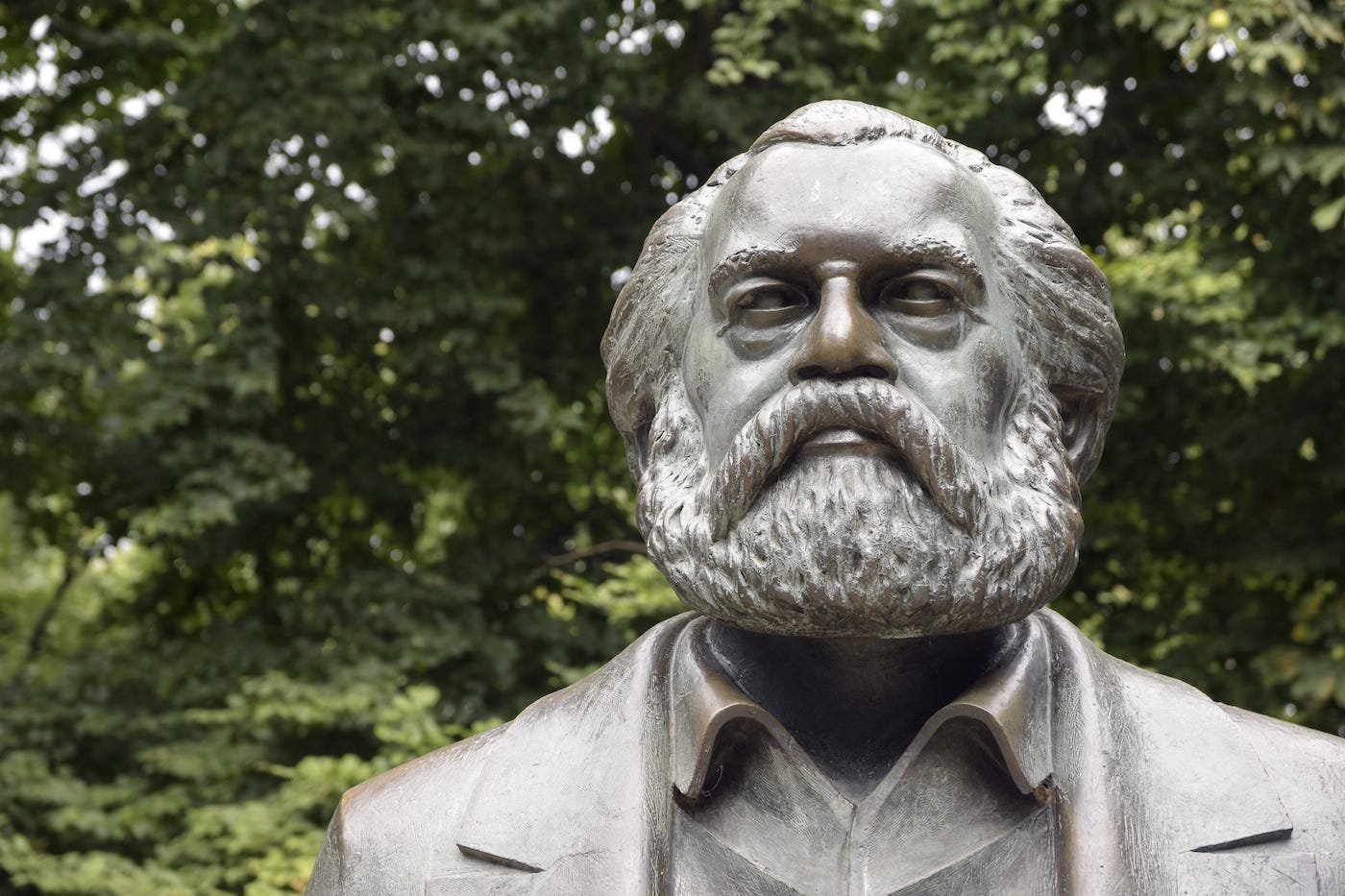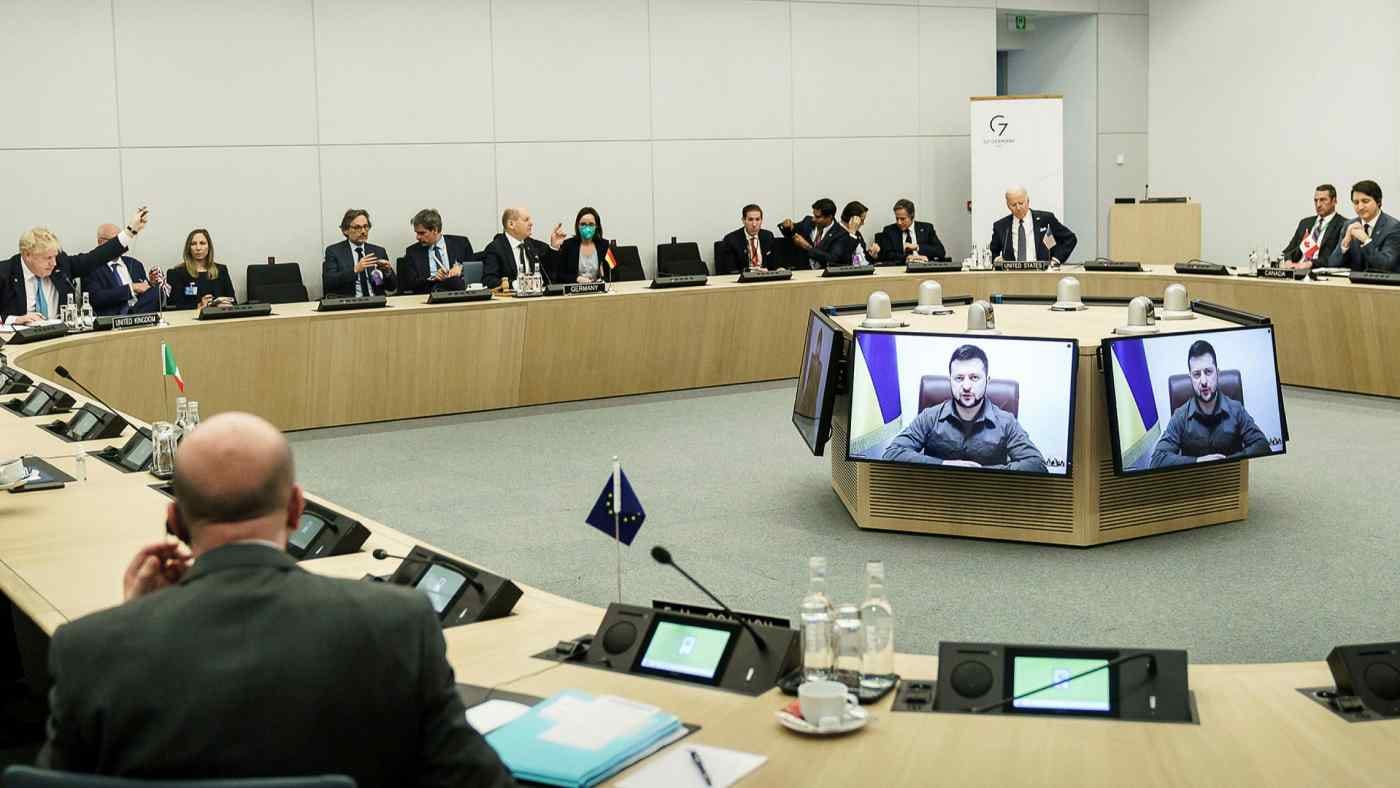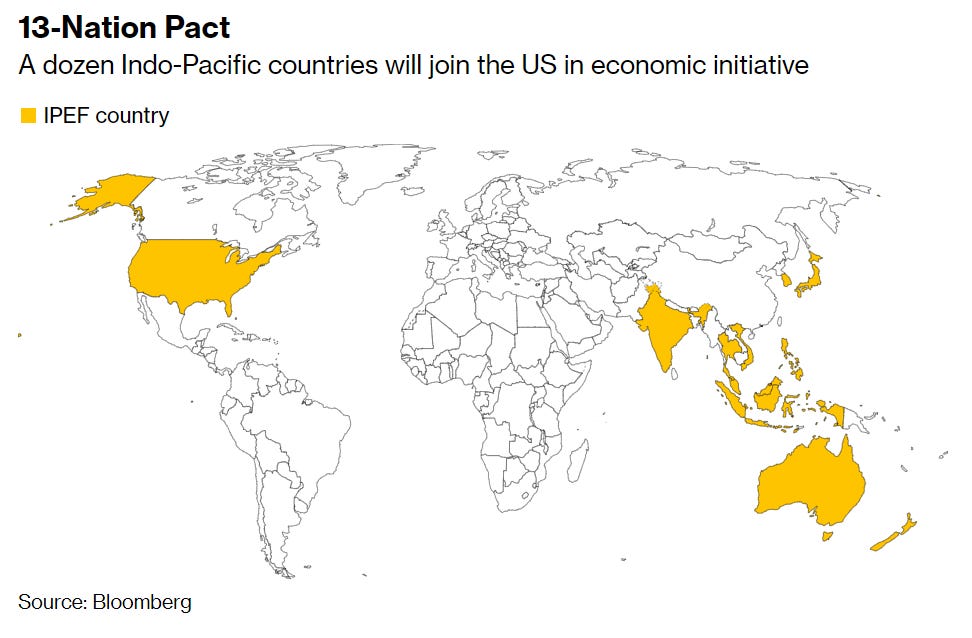Can I ask you a favour?
In producing the videos you’ve seen in this newsletter I’ve discovered that some features are not available to channels with less than 1,000 subscribers (for instance the ability to divide a video up into segments that are easily legible in the ‘progress bar’ at the bottom of the video) So I am hoping you will stop reading this newsletter, go to my channel and subscribe. As per this diagram.
The Sex Scandal that Sent Income Inequality Soaring: my best pick of the week
On Tuesday someone tweeted this to me.


He was referring to this article where I’d suggested that legislators the Anglosphere over were doing their own countries immense damage by voting against their own consciences. Why would they do that? To toe the party line.
Anyway, the tweet’s author James D’Angelo has done a lot of work showing the effect of increasing transparency in congressional committee deliberations (as opposed to the final votes on legislation once crafted). Rather than liberate ‘the people’ to greater vigilance, it’s enabled lobbyists to harass Members of Congress to toe lobby group lines. Think of the NRA. The result he argues has been an important part of the collapse of bipartisanship on Capital Hill. It’s a very interesting story.
Exhibit A is this compelling graph!
Censorship, social media and better conversations
This discussion with David Thunder arose from my criticism on his blog of his embrace of ‘free speech’ in response to his being thrown off Twitter. As I explained in my comment, I sympathised with what had happened to him. Twitter had no business throwing off someone who was clearly in good faith and seeking to debate substantial issues in a reality-based way. But as we discuss, I still thought that the issues are far from straightforward. The audio of this discussion can be found here.
Pretend thinking
Or … Idols of the modern mind: strategisation, thematisation and theorisation
In my essay recently published by the Institute for New Economic Thinking (INET) I outlined a strategy by which people imagine they’re doing economics, by sounding like an economist with all their talk of trade-offs. But they’re really engaged in a kind of pretend thinking. I call it ‘theorisation’ by analogy with ‘strategisation’ — a term I coined a while back to refer to those portentous ways in which some worthy words are launched upon the world with bold protestations of how they are uniquely suited to current circumstances. We are assured that this thing that’s being said (say the need for wage restraint, or more competition) has ‘never been more important when in fact it’s often been more important. They’re just thoughtful sounding words, but embodying the opposite of thought.
Anyway, this led to my writing up these ideas as idols of the modern mind and to the discussion above with Peyton (here’s the audio if you prefer). Here’s the introductory passage. If you’d like to read more, return this email and I’ll send you access to the full draft essay.
Intellectual progress is often made negatively — by identifying and overcoming errors and confusion. The Royal Society’s motto “Nullius in verba” — “take no-one’s word for it” — is negative in this sense. It rejects ancient authorities in favour of direct experimentation. The founding philosopher and ideologue of the scientific revolution, Francis Bacon articulated this negative agenda further, dedicating a substantial portion of his manifesto Novum Organicum to a crusade against the idols of the mind — a list of contemporary intellectual vices.
This essay identifies intellectual idols of our own age. But they lie between two extremes. At one extreme, the idols are discrete foibles. Thus Wikipedia suggests that the cognitive biases burgeoning in modern discourse are the heirs to Bacon’s idols of the mind. Their great practical success has been their modularity. With hundreds of them now identified and named, each idol can be slain one at a time.
Sadly thinking isn’t a very modular business. And as Bacon himself said:
It is idle to expect any great advancement in science from the superinducing and engrafting of new things upon old. We must begin anew from the very foundations, unless we would revolve forever in a circle with mean and contemptible progress.
At the other extreme, calls for a new paradigm are a dime a dozen these days. My proposal in this essay is that there’s a missing middle where things are getting worse by the day. In one area after another, there’s growing incoherence between two layers of our thinking and our practice. The top layer of the organising ideas we apply to structure things and a bottom ‘details layer’.
In addition to these modular attempts to improve the way things work, there’s no shortage of calls for new paradigms, to be forged, or for existing alternative paradigms to be adopted. My proposal in this essay is that there’s a missing middle where things are getting worse by the day.
Profile of Albanese (by a school friend)
Chris Dillow on stealing a living
Chris Dillow is perhaps my favourite blogger. Radical in outlook, calm and objective in description. His posts are almost invariably short and punchy and at the same time, packed with detail and knowledge of the contemporary academic and professional literature, accessible through numerous links. Anyway, having retired from the markets he’s published an excellent post on how little value his profession of financial advice adds.
Now I am retired, I can safely make a confession: for years, I was stealing a living.
I say so because the general financial advice any retail investor needs is actually very simple:
- Minimize taxes and charges. Avoid expensive fund manager fees. Don’t trade very much. Make full use of Isa and Sipp allowances.
- Make the power of compounding work for you, not against you. Start investing as early as you can. And remember that fund managers’ fees compound horribly over time; an extra half percentage point in annual fees can easily add up to over £2000 for every £10,000 invested over twenty years.
- Diversify sensibly. Hold equities for growth, and non-equity assets (which might just be cash or your earning potential) to spread risk.
- Invest regularly, via monthly direct debits. The habit of savings is important.
Chris Dillow on being a Marxist
(with a little help from Joseph Schumpeter)
Oh and if you’re concerned about him being a Marxist, I’m thinking of becoming one myself. Subject to Chris’s two distinctions:
One is between the Marxian diagnosis and the Marxian remedy. It is, I think, possible to use one but reject the other. [This is precisely what I’ve called the alt-centre move.]
The second distinction is between temporarily adopting a perspective for particular purposes and being something. You can adopt a Marxist point of view without becoming a Marxist – just as I often become an orthodox macroeconomist, behavioural or financial economist depending upon the issue I face.
One of the most common forms of stupidity is the inability to have more than one point of view. If centrists are to become a serious political force again, they must stop equating who they are with what they believe, and take a Marxian perspective.
Joseph Schumpeter made the same point differently, outing himself as a conservative Marxist in 1943:
No serious argument ever supports any “ism” un-conditionally. To say that Marx, stripped of phrases, admits of interpretation in a conservative sense is only saying that he can be taken seriously.
Speaking of the alt-centre …


Jubilee
Well no, I didn’t think I’d celebrate the Jubilee here, but there you go! Then I ran into these. Feast your eyes!
Quentin Skinner on Machiavelli
Skinner was an intellectual hero of mine when I was studying history at ANU
I even sent him an essay of mine on Henry Parker’s 1641 treatise on government as a trust and he kindly wrote back. Then when I visited my family in Cambridge UK in 1977 I got to have a cup of tea with him. Very nice fellow.
This introductory lecture on Machiavelli is excellent! Oh, and apropos of nothing, I was pondering a good friend of mine’s adulation of Machiavelli and suddenly it came to me. How do you write something like The Prince after over a century of flattering, fawning prince books? Out of nowhere as it were. Machiavelli’s book reads like a parody. He was yet another of the string of autistic people who built the modern Western outlook.
And I don’t use the term pejoratively. (It’s just a pity that things had to get so heavily skewed towards autism to build the miracle of Western civilisation and prosperity!)
The Pope’s secret backchannel to Hitler
In august 1939, as he was finalizing plans for the invasion of Poland, Adolf Hitler was also engaged in negotiations with Pope Pius XII so delicate that not even the German ambassador to the Holy See knew about them. The existence of these talks was a secret the Vatican was eager to maintain long after Pius XII’s death—as it did for eight decades. The 12-volume compilation of the Holy See’s documents on the Second World War, completed in 1981, which to date has constituted the official record of Vatican activity during that period, contains no reference to the negotiations. Knowledge of them has only now come to light with the recent opening of the Pius XII archives at the Vatican. …
Pope John Paul II was reportedly preparing to beatify Pius XII in 2000 when opposition, especially from Rome’s Jewish community, caused him to put the process on hold. His successor, Benedict XVI, called for waiting until the Vatican’s archives for the war years were opened before making a final decision. He did, though, agree to proclaim Pius XII “venerable,” a step on the way to sainthood. In 2019, Pope Francis authorized the opening of the Pius XII archives, which became available to scholars in 2020. In the two years since then, no new finding has been as dramatic as the discovery that, shortly after he became pope, Pius XII entered into secret negotiations with Hitler, a story told here for the first time.
Some good news


Teaching Hellen Keller to speak
AMAZING!
 Tiktok failed to load.
Tiktok failed to load.Enable 3rd party cookies or use another browser
Did US Biotechnology Help to Create COVID-19?
By Jeffrey D. Sachs and Neil Harrison
While blaming China exclusively for COVID-19's apparent emergence in Wuhan, US authorities have suppressed inquiries into the role that US scientific research institutions may have played in creating the conditions for the pandemic. Yet if the coronavirus did indeed come from a lab, US culpability is almost certain.
Both sides of the political spectrum overestimate the other side’s radicalism
In late October 2020, we asked more than 1,000 people in the United States whether they agreed that “police departments are irreversibly broken and racist, so the government needs to get rid of them completely.” Only 28 percent of the self-described liberals even somewhat agreed, indicating that this was not a solid consensus on the left.
Although far out of step with what most liberals actually thought, Carlson’s sampling of liberal views was emblematic of what conservatives believed about liberals. Conservatives in our sample estimated that 61 percent of liberals—more than twice the actual number—endorsed the abolition of law enforcement.
On issues of culture war this is symmetrical
Many on the right recognize both the humanity and hardship of police officers and those harmed by them. When we asked conservatives if police were almost always justified in their shootings of Black people, only 31 percent of respondents even somewhat agreed with the sentiment. Liberals, on the other hand, estimated nearly double that number of conservatives—57 percent—gave police a free pass.
Interestingly the two sides have a much more accurate idea of what ‘the other side’ thinks when it comes to issues that are less freighted with culture war — like economics and health care.
Ukraine
Two European views on how the war with Russia should end
Beyond the caricature of appeasers versus warmongers, the current debate revealingly pits western European leaders against their counterparts in Europe’s former Soviet satellites. The Russian war in Ukraine has laid bare an entirely new intra-European dynamic.
Germany, France and Italy are the powers most unsettled by the new situation because it has shattered the model of a relationship with post-cold war Russia built on trade and energy or, in Macron’s case, on the dream of building a future European security architecture.
On the other hand, Poland and the Baltic states feel that their profound distrust of Russia has been vindicated and are buoyed by the prospect of Finland and Sweden joining Nato. Poland now envisages a partnership with Ukraine in a future Europe that could be as strong and influential in its way as the Franco-German tandem was in the old Europe.
Is Putin's playing a different game?
Branko Milanovic asks whether Putin is inducing the West to put up the walls that were put up by the Eastern Block back in Soviet days. Why would he do that — because he values the additional sovereignty it gives him to do what he wants ahead of the economic output he’s sacrificing by decoupling Russia from the West.
This does not mean that the current government is totally indifferent to the cost of sanctions. But it will accept increased sanctions so long as the income cost of new sanctions is less than the gain in sovereignty. At some point, it will decide that the trade-off had gone far enough, and at that point it will negotiate. But before it does so it will make sure that it has gained sufficiently, and for a long time, in the ability to independently decide on its policies.
The implication of this way of seeing the Russian objectives is that sanctions and decoupling between the West and Russia are no longer seen only as costs that Russia is paying, but rather as West doing what the current leadership believes is in the fundamental long-term interest of Russia: breaking off of all links between Russia and the West, and thus freeing Russia to follow its own course.
Fascinating tweet thread placing Ukraine in geostrategic context:

Another alliance anyone?
Interesting article from Noah Smith:
During the Cold War, we opened our markets to the products of our three key East Asian allies: Japan, South Korea, and Taiwan. This helped them execute a successful export-led development strategy. Exporting alone didn’t make those countries rich, but it helped raise productivity, boost investment, and create popular buy-in for policies to further boost living standards. (After the Cold War, the U.S. also helped China by opening our markets to their exports — a decision some now regard as a blunder.)
The U.S. can do much the same thing with key South and Southeast Asian nations today that it did with East Asian nations in the previous century. Allowing India, Vietnam, Indonesia, Bangladesh and the Philippines to sell their products in the U.S. largely unimpeded will boost growth by creating a stable, predictable source of demand, and by incentivizing companies in those countries to learn foreign technologies and business models in order to compete internationally.
This will accomplish three goals at once:
It will improve and strengthen economic and political ties between the U.S. and its prospective friends and allies in the region.
It will make these Asian countries economically stronger and more technologically advanced, and thus more capable of resisting Chinese power.
It will help the U.S. reshore production from China to more friendly countries, making our supply chains more resilient in case of a conflict. (This is often called “ally-shoring” or “friend-shoring”.)
The U.S. recently took a tentative step toward a plan like this, with the rollout of the Indo-Pacific Economic Framework (IPEF), a grouping that includes India, Indonesia, Vietnam, and the Philippines:
The first of thirty essays
I prepared to scoff at this person’s writing 30 essays in 30 days. Not that that’s impossible or anything, but then she goes and talks about writing 500 words — good words — an hour. And then she writes a pretty natty essay on why writing fast can be a good thing to do. And pulls it off very well!
Fixing Japan's broken corporate culture
Noah Smith’s ideas for boosting workplace productivity
I knew nothing about this, and so found the article of interest.
Cricketer & Communist
C L R James: A Life Beyond the Boundaries
Interesting review of a brilliant and difficult life about which I knew next to nothing.
[James’ masterpiece on cricket] Beyond a Boundary has never been out of print. Its admirers have included John Arlott, the greatest of cricket commentators, David Gower, whose graceful batting style James adored, and Ian Botham. The last two regularly visited him in his Brixton flat, situated above the offices of Race Today, during his long dotage. He remained an optimistic, eloquent advocate of far-left theories and pan-Africanism, though was suspicious, like many Marxists of his age, of the rabbit hole of identity politics.
His aesthetic judgement remained finely honed up until his death in 1989 at the age of eighty-eight. He was delighted by the gift of Glenn Gould’s recording of Bach’s Goldberg Variations, presented to him by Edward Said. Typically, James was far more interested in Said’s career as a classical pianist than in his theory of Orientalism. By the end of his life, he had whittled down his passions to what he thought the very best: Michelangelo and Leonardo; Bach, Beethoven and Mozart. His unapologetic embrace of high culture was itself a form of radicalism. C L R James remained a revolutionary to the end.
Dreckwatch on social media regulation
Beneath the portentous title “Digital Technology Demands A New Political Philosophy” Jamie Susskind spends a lot of space not saying much before finally concluding that a ‘republican’ approach to social media is to govern it according to political, not commercial regulation. Hard to disagree.
And then there’s this. It asks “𝑤ℎ𝑎𝑡 𝑑𝑜𝑒𝑠 𝑔𝑜𝑜𝑑 𝑙𝑜𝑜𝑘 𝑙𝑖𝑘𝑒”. This sounds like such a thoughtful thing to ask. But surely we’re interested in addressing the most egregious problems and our interest won’t achieve much if it’s not pretty savvy about the constraints under which any would be reformer would operate — constraints like how much power existing proprietors have, the difficulties of social media governance more generally. Of course that doesn’t mean one couldn’t have a discussion that starts where this one does and ends up somewhere insightful and/or useful. It’s just that that’s not what happens here. The biggest disappointment is that this is that Peter Pomerantsev is involved and he’s written great stuff on the problems.




The rise and rise of mammals
I enjoyed this brief book review dipping into natural history (about which I know bugger all beyond what I remember from Tim Flannery’s fascinating Future Eaters.
I learned lots of new things about mammal evolution, but here are a few things stood out to me. First, that mammals have been evolving and thriving for a very long time – with mammalian traits evolving over hundreds of million years! The common narrative is that mammals were a trivial piece of the animal ecosystem during the reign of the dinosaurs, and it wasn’t until after they went extinct (with the exception of birds) that mammals finally had their time. In one sense that is true, but as with most things, it’s a bit more nuanced than that. Mammals simply occupied a different niche than dinosaurs. Mammals were abundant and diverse during the age of dinosaurs, but they were just very tiny. And what’s even more interesting, is that dinosaurs not only put pressure on mammals to stay small, but mammals also put pressure on dinosaurs to stay big!
Second, jaw and teeth evolution played a key role in mammals becoming who they are. Brusatte’s book focuses a lot on teeth and jaw evolution – and for good reason. Mammals evolved a new jaw joint that not only allowed us to innovate in the way we ate – allowing for chewing rather than swallowing food whole (imagine crocodiles eating) – but it also led to our keen hearing by freeing up some bones that were repurposed into the tiny three inner ear bones that define mammals.



























